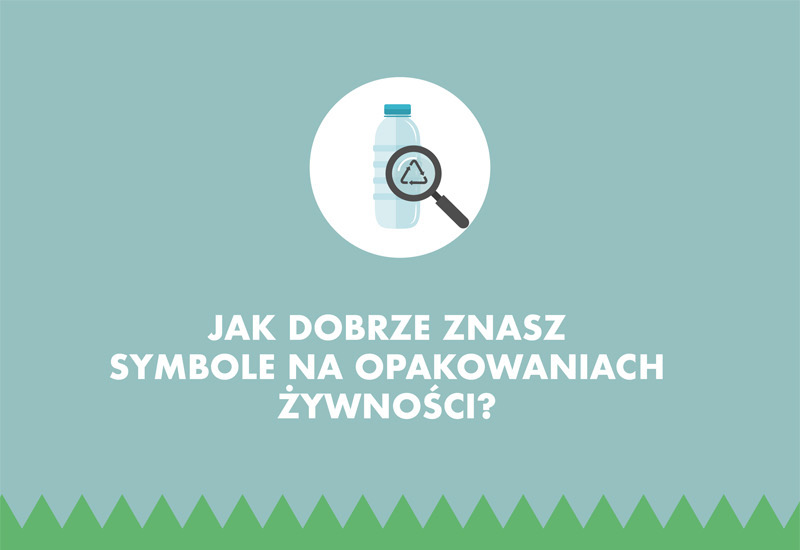
Although our awareness of the proper handling of food packaging continues to grow, the need for education on, for example, knowing the symbols on packaging or recycling multi-material packaging is not diminishing. Packaging Day is celebrated on 15 September.
With help and answers to these concerns comes a European educational campaign for responsible handling of food packaging, in which our Institute participates.
The premise of the international InformPack project is to investigate gaps in consumer knowledge and create educational campaigns to ‘give’ food packaging a second life.
– In the first stage of the project, we surveyed consumers in various European countries, including Finland, Spain, Denmark and Poland. We asked them, among other things, whether they pay attention to the material the packaging is made of when buying food, whether they are able to resign from buying a product because of an excessive amount of plastic in the packaging, or whether they find it difficult to segregate used packaging – says Dr Joanna Fotschki, involved in the project on behalf of the Institute.
The results of the surveys identified gaps in consumer knowledge and were the basis for the creation of educational materials – infographics and films – on issues related to food packaging and responsible consumer attitudes. The materials have been translated into many languages including Polish, Italian, German, Danish, Finnish and French.
The infographics can be viewed and downloaded here. They include answers such as what to do with used multi-material materials, what the symbols on food packaging mean and whether it is really necessary to clean food packaging before recycling.
The videos are available here. They cover topics such as bioplastics, multi-material packaging and rPET (recycled plastic).
– We have also created ‘Recycle Hero’ quizzes in both children’s and adult’s versions, and organised workshops for schools, e.g. at the Municipal Waste Neutralisation Plant in Olsztyn, where participants could learn about the waste processing technologies used there – adds Dr Joanna Fotschki.
You can find all the information and materials on our website.
Food packaging in Poland
The InformPack project is supported by Monika Michalska – an expert in waste processing technology, known in social media as the ‘Waste Lady’.
When asked whether Poles know and understand the symbols of different packaging, she answers that our society is divided into two groups on this issue. – Some are actually interested, read the symbols on the packaging and know what they mean. Others, on the other hand, don’t pay any attention at all – she points out.
She adds that although awareness is changing for the better (also in terms of the ability to sort used packaging), when it comes to choosing a product with more or less ecological packaging, we are still guided by its price.
According to the expert, on average in Poland, 27% of all selectively collected (i.e. sorted) waste is recycled.
– The easiest and most effective recycling is that of metal, e.g. all aluminium cans. In this case, recycling does not result in a loss of quality of this packaging. The same applies to glass – stresses Monika Michalska.
Plastic packaging is the most difficult to recycle. – In this case, the easiest packaging to recycle is household chemical, cosmetic or detergent packaging, i.e. the ‘thicker’ plastic. On the other hand, flexible packaging such as disposable packaging, packaging from sweets or loose products is very difficult to process. We are not able to recycle them mechanically, and research is still trying to develop chemical recycling in this area (and even if such solutions are already appearing, it is in small installations, not on an industrial scale) – explains the expert.
In her opinion, one of the challenges that we as a society still need to work on is the segregation of bio waste. – There is still a lot of plastic in there, which means that although we are throwing bio waste out there, it is in some sort of plastic bags or commercial bags – she says.
On the occasion of Packaging Day, Monika Michalska points out two more issues. – First of all, we should remember to dispose of empty packaging, as left-over foodstuffs are a big barrier to recycling. Even if a product spoils, let’s throw it into mixed or bio waste and the packaging separately. The second point is to buy food in the simplest possible packaging, preferably mono-material packaging, which is recycled most easily and efficiently – she urges.
According to estimates cited by the expert, in 2025, 250 000 tonnes of PET bottles, 30 000 HDPE bottles (e.g. for dairy drinks such as milk, buttermilk, drinking yoghurt) and 75 000 tonnes of aluminium cans will be introduced into the Polish market. At the same time, it is estimated that between one third and more than half of these will be recycled.
About EIT Food InformPack
The EIT Food InformPack project is an international initiative of scientific institutions from the University of Aarhus (Denmark), the University of Reading (UK), the Institute of Animal Reproduction and Food Research of the Polish Academy of Sciences (Poland), the VTT research network (Finland), manufacturers: Bioazul (Spain) and Maspex Group (Poland), and the Spanish supermarket chain Eroski.
The aim of the project’s activities is primarily to change consumer behaviour so that they deal with food packaging in a responsible and sustainable manner. It is also important to involve and raise awareness among food producers themselves, as well as the local authorities responsible for, among other things, the availability of waste segregation bins on the streets.
InformPack is funded by EIT Food, the Knowledge and Innovation Community for Food of the European Institute of Innovation and Technology (EIT), a body of the European Union, under the EU’s Horizon 2020 framework programme for research and innovation.